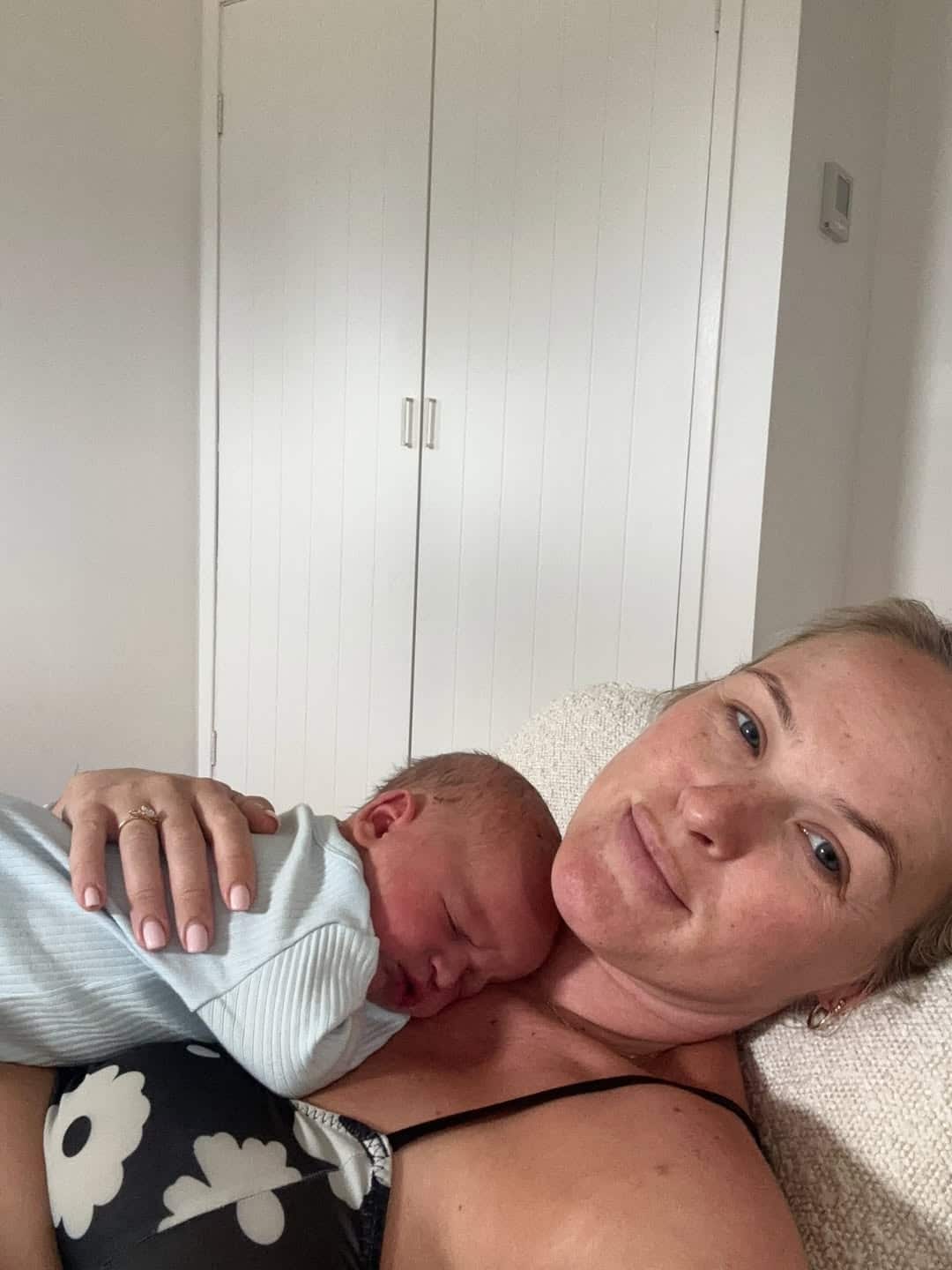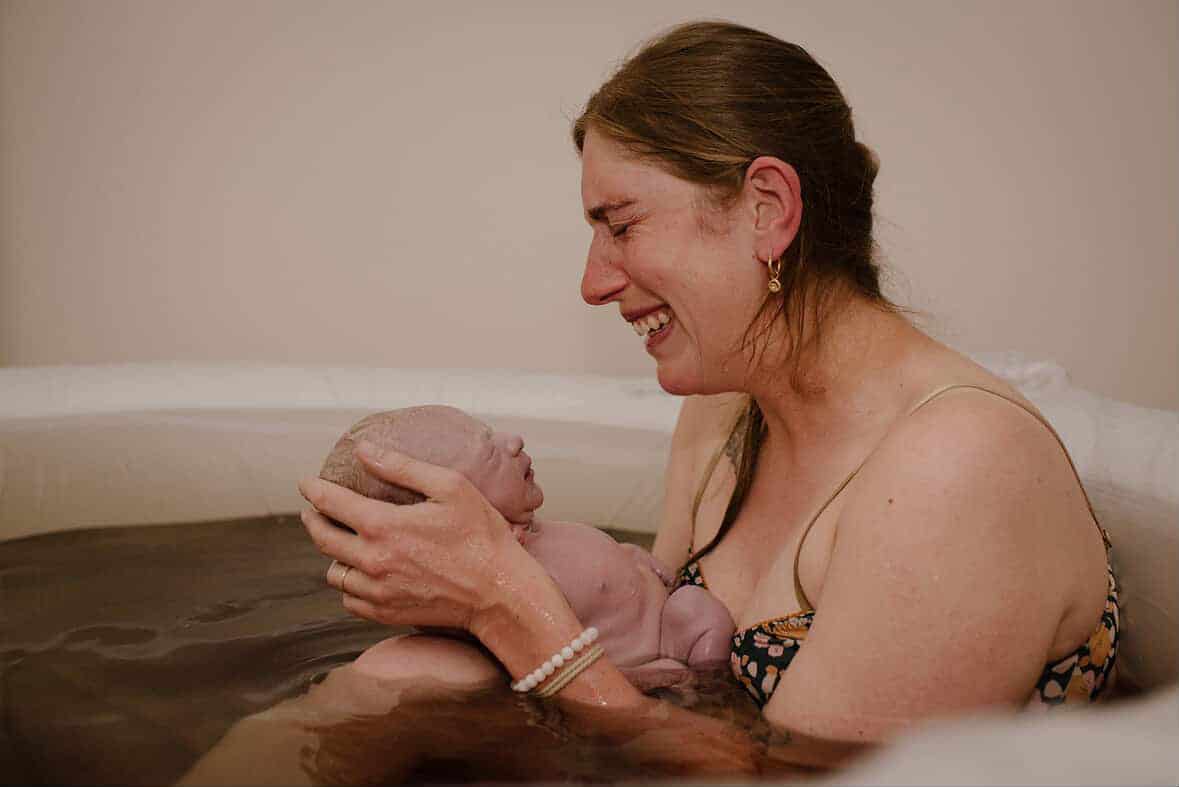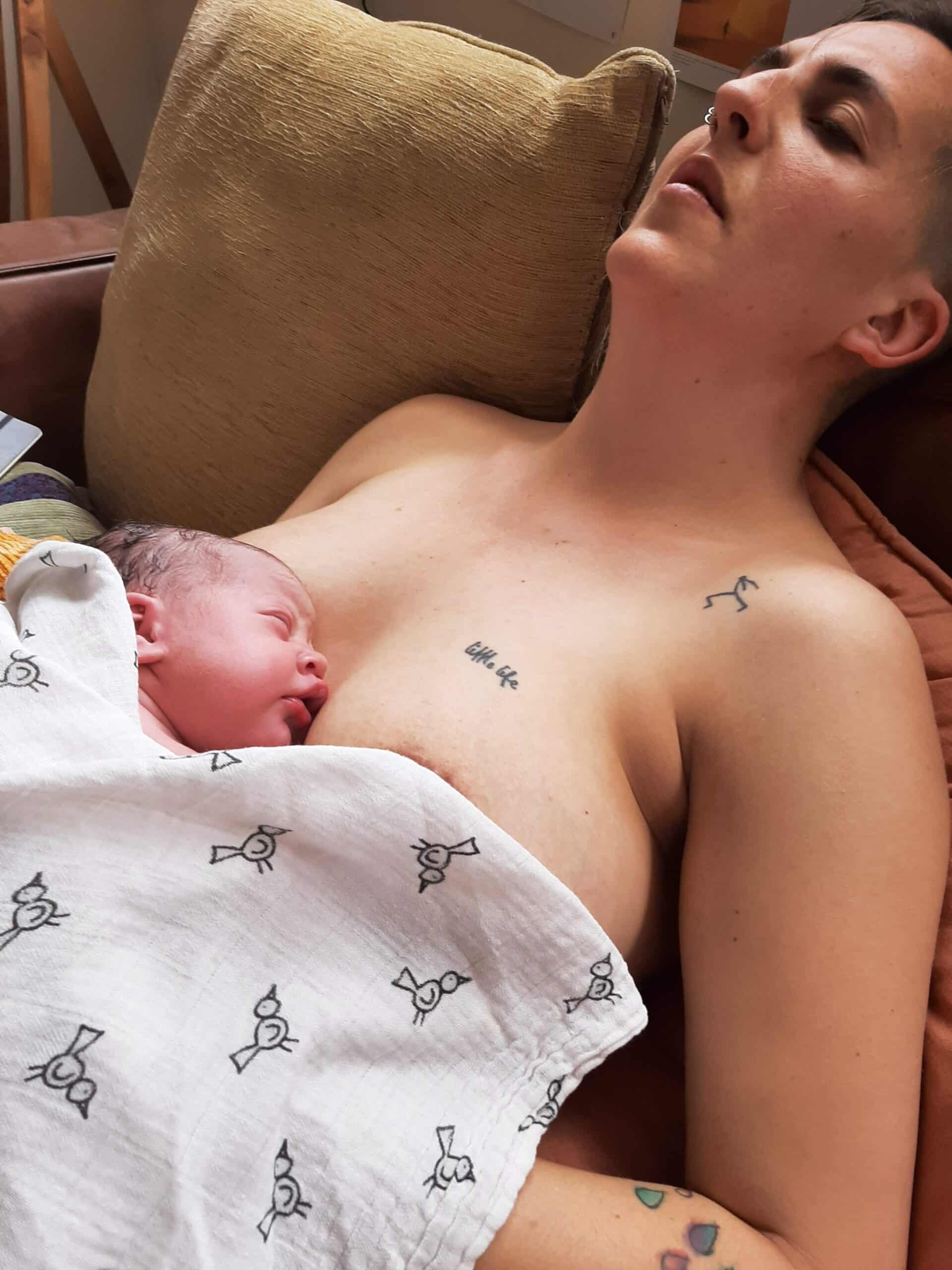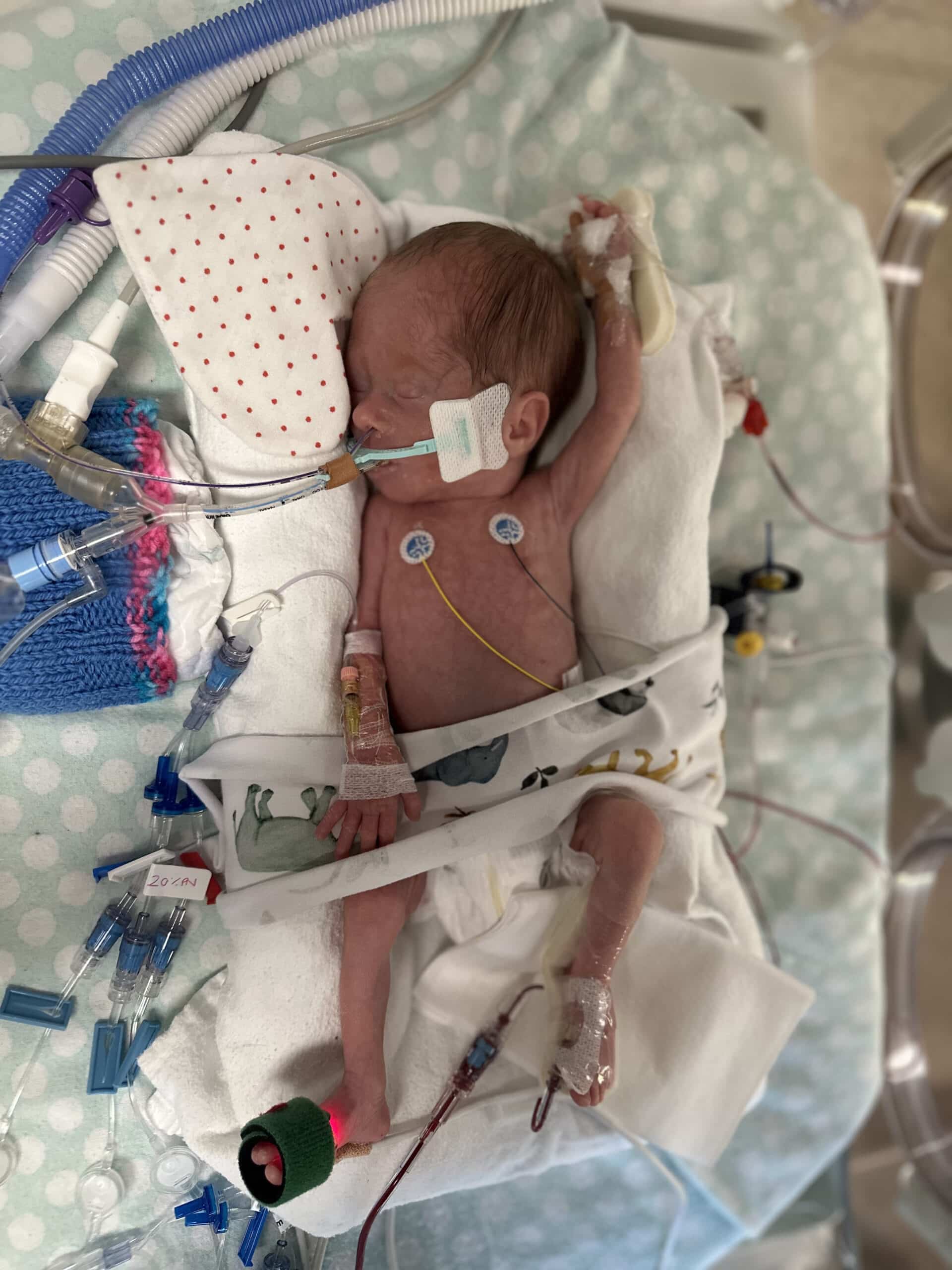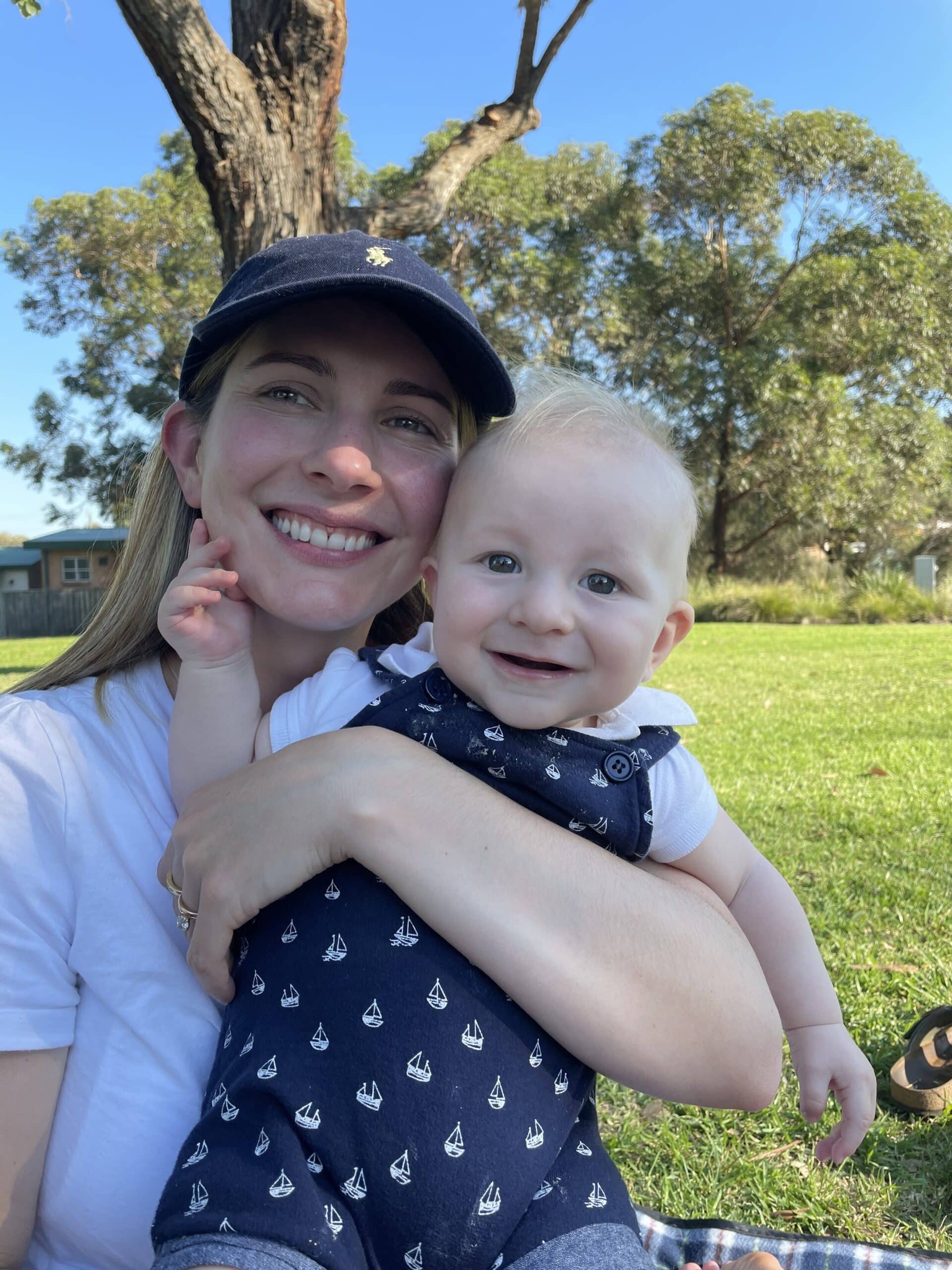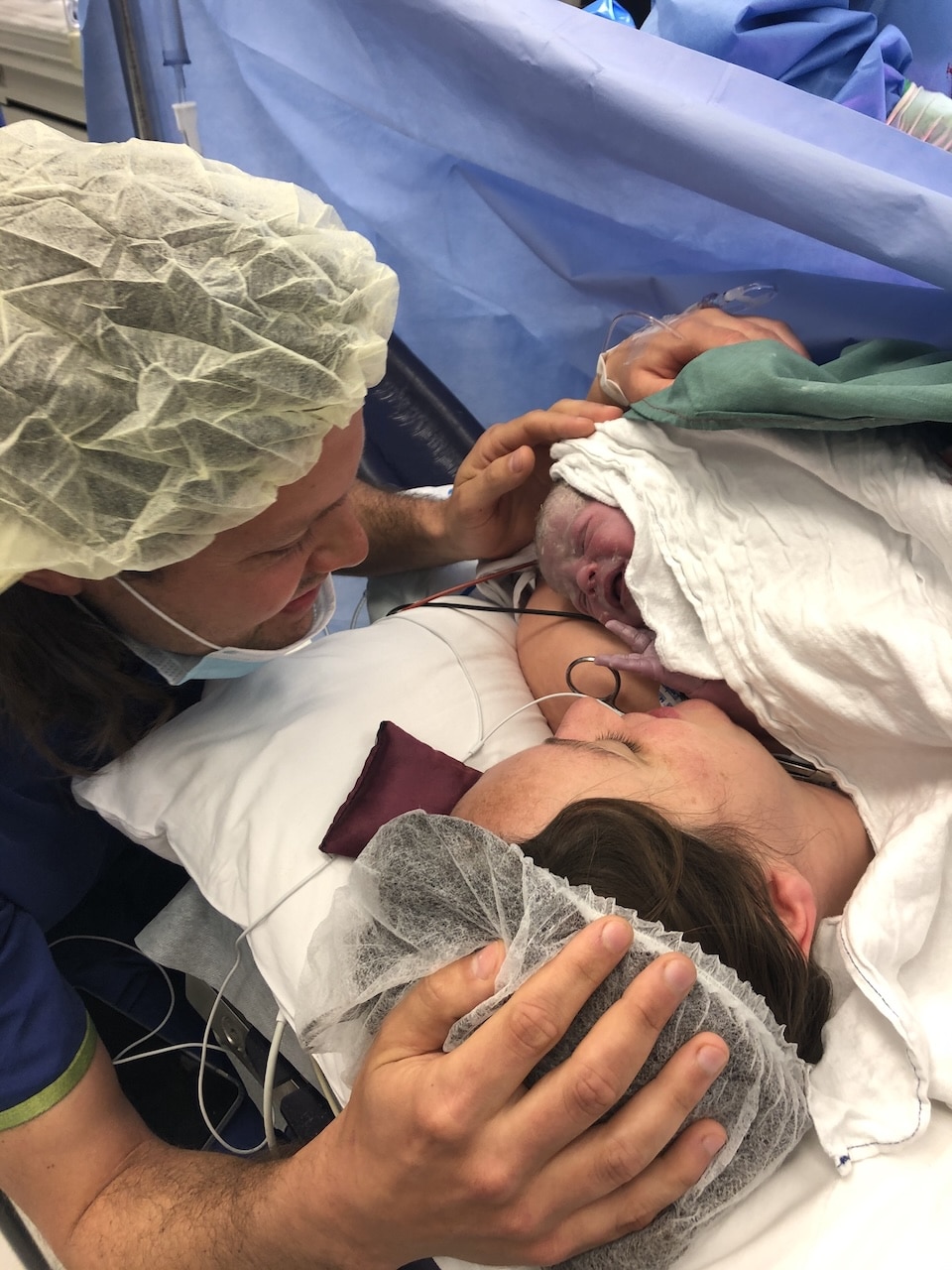Podcasts Ariane | Postpartum psychosis, hallucinations, postpartum depression
EPISODE 479
Ariane | Postpartum psychosis, hallucinations, postpartum depression
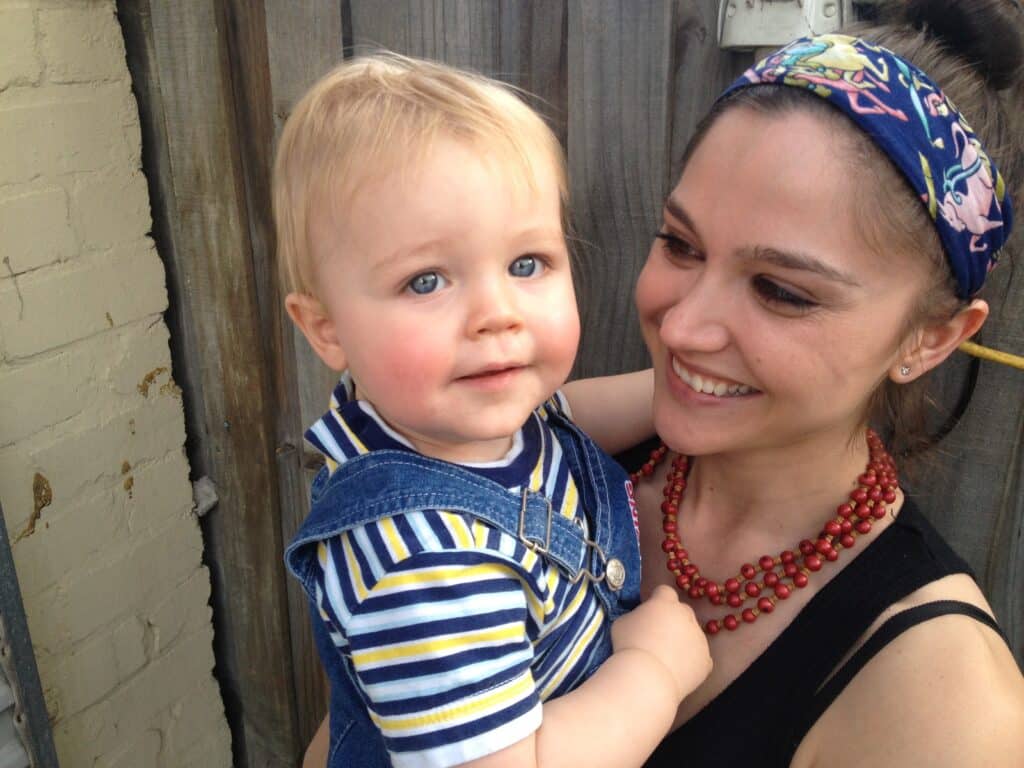
“I worked in child protection as a psychologist and in the early years of my career, I did frontline work where I had a number of babies on my caseload. Towards the end of my pregnancy I felt an absence of emotion; I was numb and everything was striped of colour. Everyone else was excited and there was so much anticipation but I felt nothing which was very different to my expectations. Henry was overdue so there was a lot of waiting. I really believed that once the baby was here, it was going to be okay. I did think that a lot of my anxiety was due to fear; of the birth and looking after my baby.
I held Henry and felt nothing, it was like a strange out of body experience. I was very conscious of my disconnection. In the first night in hospital I looked at Henry in his cot and I didn’t feel anything. In hindsight, my symptoms started at around day six which is in line with what we know about postpartum psychosis. The first sign was that I woke up in the middle of the night and when I was changing Henry’s nappy and I noticed he had nappy rash and my anxiety immediately kicked in. It wasn’t unusual in my work for me to take neglected babies from their parents and then care for them before foster parents stepped in and that always involved changing nappies and usually, nappy rash. My anxiety spiralled from there and I became convinced that the department of communities and justice would remove him. It became a delusion – a false belief – that the caseworkers would know about this rash and come and take him. It felt completely rational to me at the time.
A lot of women who experience perinatal mental health are fearful that their children will be removed but there’s a difference between that fear and me, who worked in the system and knew they
I didn’t talk about the delusions about him being removed at the time but I did become fixated on the rash. My husband was travelling at the time and I would send him photo after photo of the rash. If someone knocked on the door, I would faceplant to the floor to hide because I presumed someone was coming to take Henry.
I was the first of my friends to have a baby and my siblings didn’t have children so I started to feel quite isolated. I also started experiencing hallucinations; I would look at Henry and sometimes he would look like a little dragon. I would sometimes look at him and find it very difficult to make out his face, it’s very difficult to articulate exactly what it was. I didn’t think I was hallucinating at the time, I just thought he was a dragon.
Interviewed a perinatal psychiatrist for my book and she said if a mum is demonstrating odd behaviour in the early days and weeks, it’s postpartum psychosis until proved otherwise.
I remember a friend coming for a walk with Henry and I and she kept saying what a cute baby he was. I couldn’t hold it in so I asked her why she was lying to me and that was the paranoia breaking through. Later that night she sent me a link to the PANDA helpline and website but I didn’t look at it, although it did plant a seed that something wasn’t quite right.
One day I had a very strong sense that I’d died and because I presumed I was dead and I took my own life, it wouldn’t matter because I was already dead. The suicidal ideation was really strong but in my mind I was dead. I remember sitting in the park and taking photos of my feet and my hands to figure out if I was alive.
The critical moment was when my husband was overseas for work, Henry was six months old and everyone at my mother’s group had moved through those hard first few months and their babies were engaging with them…and I just felt really removed from the whole experience, I just seemed so different to everyone else. As soon as my husband left the house to go to the airport I started crying and I couldn’t stop crying for three days. My best friend came over and encouraged me to see a GP and I went to the appointment the next day. I literally walked in and just sobbed and he put me on an antidepressant as a first line treatment and referred me to a perinatal psychiatrist. I went to see the psychiatrist and in hindsight we weren’t the right fit; I found it desperately difficult to understand how a man could relate to what I was going through. I was leaking and reeling and I was tired and I just wondered how he could possibly understand.
At this point I was diagnosed with severe postnatal depression and anxiety but the psychosis hadn’t been diagnosed because I hadn’t discussed those aspects of my experience. If the psychosis isn’t florid and really obvious, but there might be disillusion or hallucination or beliefs around the baby that aren’t being recorded or disclosed. We don’t have screening tools for postpartum psychosis so it is dependent on disclosure or professionals asking the right questions.
We often hear about postpartum psychosis when it hits the media headlines, where a mother takes her own life or her baby’s life, called infanticide. What research shows is that these women are experiencing a psychotic depression until after these events occur because no one is picking up on the symptoms.
I was admitted to the mother and baby unit, the only private unit that existed in NSW at the time. I wasn’t scheduled but I wasn’t thrilled at the suggestion, either. I’d tried a psychiatrist, I’d tried medication and I needed some sleep and a proper review. Being on a psychiatrist ward as a psychologist and as someone who has worked in child protection was very humbling.
Women do feel stigma around disclosure of perinatal mental health but on top of that I had the stigma of being a psychologist with a mental illness and I kept thinking: if I’m honest and I give too much away, they’ll take away my licence and I’ll never be able to work again and that definitely stopped me from discussing my more severe symptoms. I eventually saw a psychiatrist who I still see today, 11 years later. She put me on a new antidepressant and after three sessions she showed me the letter she was writing to my referring GP and she wanted to be transparent with me. She said that she believed I’d experienced severe psychotic depression in the perinatal period and for me it was almost a relief to read that. There was something about the way she saw me; she could read between the lines of what was going on, she saw the whole of me. Once she’d named it as such it all came out from there, I shared everything with her.
I returned to work and after about six weeks I had a spectacular relapse; I started to see Henry as a dragon again and having moments of not being in my body or feeling like parts of my body belonged to me. I trialed different medications; an antidepressant, a mood stabiliser, an anti-psychotic and navigating the many side-effects. I had to let my psychiatrist steer the ship because I couldn’t orchestrate my own care or recovery. She always reassured me that I would get better but it was very hard to believe her at the time. She told me she would hold hope for me and she did.
Depression will be lifelong for me; at least once a year I’ll have an experience that prompts a depressive episode. A lot of mothers come to their first appointment with a psychologist or midwife and they’re often beautifully presented because they have control of that. A good clinician will see past that mask.”
You can find out more about Ariane’s book Because I’m Not Myself You See.
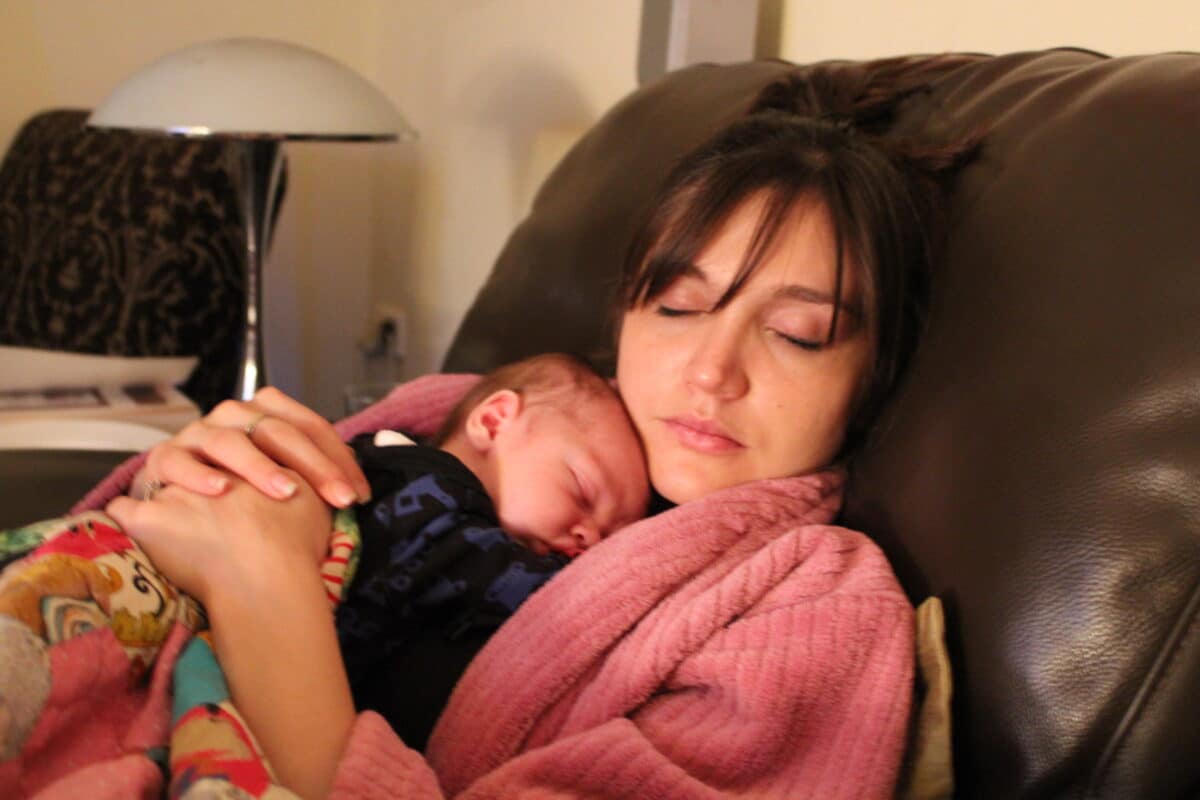
Topics Discussed
hallucinations, Postpartum depression (PPD), postpartum psychosis, Psychologist, psychotic depression
Episode Sponsor
If you’re considering The Birth Class, now is the time to buy. It just got bigger and better thanks to new content that enhances your birth education and preparation experience, including:
- A cheat sheet for your birth partner. This simple outline takes your support person through early and active labour – what to expect, how to support and what to say when challenges arise
- Images of birth positions – the ideal addition for visual learners 3 meditations to release tension, foster trust and navigate a change of plans.
- An illustrated guide to antenatal expressing – everything you need to know about collecting and storing colostrum.
Categories
Related Products
-
Birth Meditations
$49.00Narrated by Sophie Walker, these soothing and informative meditations help you feel supported and confident around birth.
Join the conversation
Sign up to get the latest updates, freebies, podcast releases straight into your inbox
@AustralianBirthStories
Follow along with us
@AustralianBirthStories
Follow along with us
@AustralianBirthStories
Follow along with us
@AustralianBirthStories
Follow along with us
@AustralianBirthStories
Follow along with us
@AustralianBirthStories
Follow along with us
@AustralianBirthStories
Follow along with us
@AustralianBirthStories
Follow along with us
@AustralianBirthStories
Follow along with us
@AustralianBirthStories
Follow along with us
@AustralianBirthStories
Follow along with us
@AustralianBirthStories
Follow along with us

